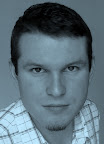By Andrej Nosko
The event opened by a presentation of The annual Energy Outlook 2008, introduced by Justine Barde, EIA Economist. Second day was opened by President Solyom, followed by 7 panels on wide-ranging topics. Out of the political speeches, Hungarian opposition leader Viktor Orban, in his address, emphasized new regional cooperation, strengthening north-south infrastructural linkages, and framing of the energy crisis as an economic opportunity. It was quite interesting hearing from him also about the geothermal and solar opportunities in Hungary, which was later on taken up by more technical presentation by MOL experts (MOL is a leader in Geothermal in Hungary). Zeyno Baran emphasized the need for clear Russian strategy, for EU and especially for CEE. Kresimir Cosic, member of the Foreign Affairs Committee of the Croatian Parliament, presented Croatian Energy strategy and plans to build LNG terminal at Krk. Interesting discussion emerged during the panel on trade-off between competition and Energy security, when Laslo Varro, vice president for strategy and development of MOL Hungary, and Said Nachet, the energy director of International Energy forum secretariat, Saudi Arabia discussed market issues of spare capacity, pricing incentives of not removing the infrastructure bottle necks, and the effects of (de)regulation and unbundling.
Although there were no surprising news, if one follows the energy landscape in Central Europe, the discussions pointed out some re-emerging topics, and highlighted issues that will be on the agenda in the upcoming months or even years. We will surely follow developments around Nabucco v. South Stream, which should be discussed early next year at the special Nabucco summit to be held in Budapest, as well as issues of Central European Energy cooperation, which does not yet have any specific contours.




No comments:
Post a Comment